Simple Steps on How to dye seashells for Summer Crafts with Kids
We love taking a trip to the beach and after arriving home and finding a pocket full of shells again we decided to use them in some crafts instead of just adding them to our nature table. This simple tutorial walk you throw how to dye seashells so that you have a pretty material to use for summer crafts. It was so easy we did it with our preschooler and at the same time she learnt a little about mixing colours and science but mainly we made pretty pastel seashells for our crafts this year.

Materials needed to dye seashells
We have included affiliate products that we used and recommended in this how to.
Food Colouring in Primary colours and black
Water
Shells collected from beach trip recently
Small Glass Bowls
How to dye Seashells
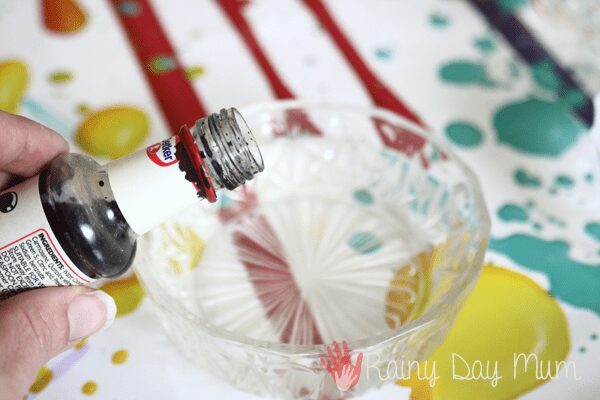
A search for how to dye sea shells brought up this post about it from The Educators’ Spin On It using Easter Egg Dyeing Kits, which we don’t have in the UK but with knowledge of seashells being made from calcium and chemical reactions with acids I put together some vinegar and water mix which would react slightly with the shells but not erode them completely and allow the food colouring to be absorbed into the shells.

With 7 small glass bowls we mixed in some water and vinegar (around a 1:4 mix is what worked the best) and added black food dye to one bowl then in 3 other bowls added the 3 primary colours – a red, a blue and a yellow. They were easiest to stir with a toothpick.

The 3 primary colours were quickly identified and then we moved onto colour mixing to discover new colours – pouring in a tiny amount of each colour T mixed them together – as they blended we took time to discuss the 3 colours (with slow stirring with the toothpick we were able to see all 3 colours at once).

With all of the colours made – black, red, blue, yellow, orange, green and purple we then added 6 shells to each pot and T stirred them in the mixes with a tooth pick.
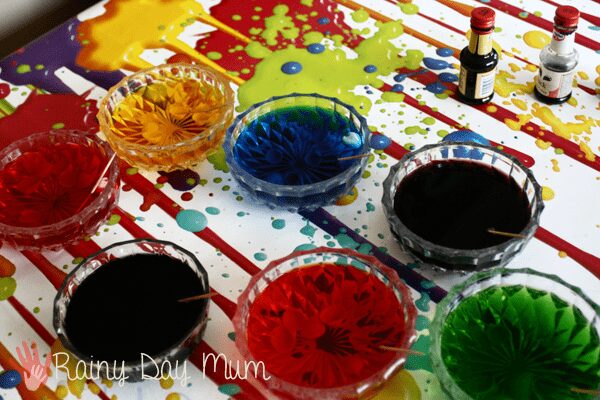
Leaving the shells in the bowls for 10 minutes whilst we went off and cleaned up a bit (dyeing shells gets quite messy especially when using food colourings). We then removed them and laid them out on a paper towel to dry.

The shells have produced a really pretty pastel effect on them – we also tried dyeing with the same method we used for the egg shells and the red produced a deep colour but all of the other colours we still pastel coloured.
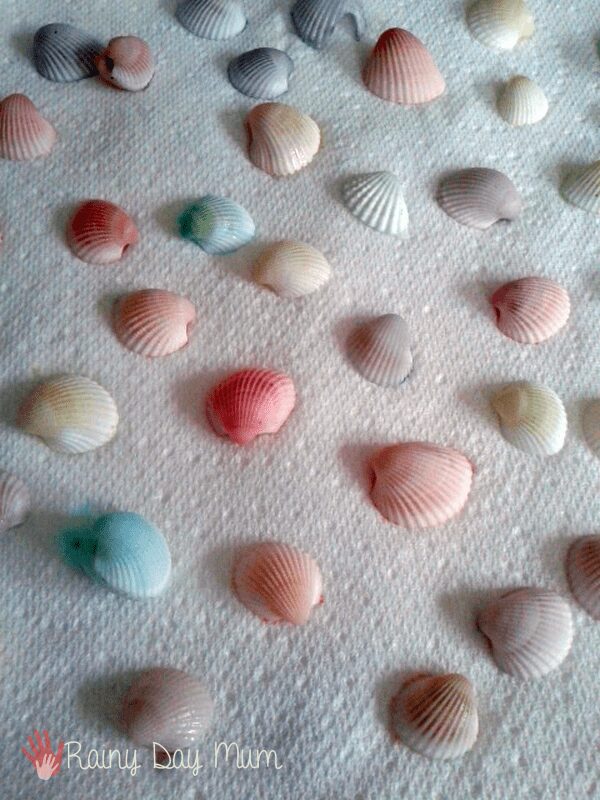
Looking for Ways to Use These Pretty Dyed Seashells
Use the Seashells to create some of the crafts within the craft book Seaside Tinkered Treasures. We made the Windchime with some shells. This book has a selection of vintage-inspired crafts made using driftwood, shells, and pebbles found on the beach.
Decorate your home with Shells inspired by ideas within Shell Chic: The Ultimate Guide to Decorating your Home with Sea Shells.
Be inspired by the crafts for you and your children to do together in Best of Seashells Projects for Adults and Kids.
Inspired by the seashells and love the coastal look check out the ideas within Coastal Crafts.
Seashells Decor for your Home
Fairy lights aren’t just for Christmas this shell and Driftwood fairy lights would be perfect for summer evenings when you entertain outside.
Add some coastal scents to your home with this Mermaid Lagoon Soy Candle.
If you love Yankee Candles and their fragrances try the Island Waterfall available on Ebay.co.uk and Ebay.com
More Sea Shell Crafts for Kids to Make
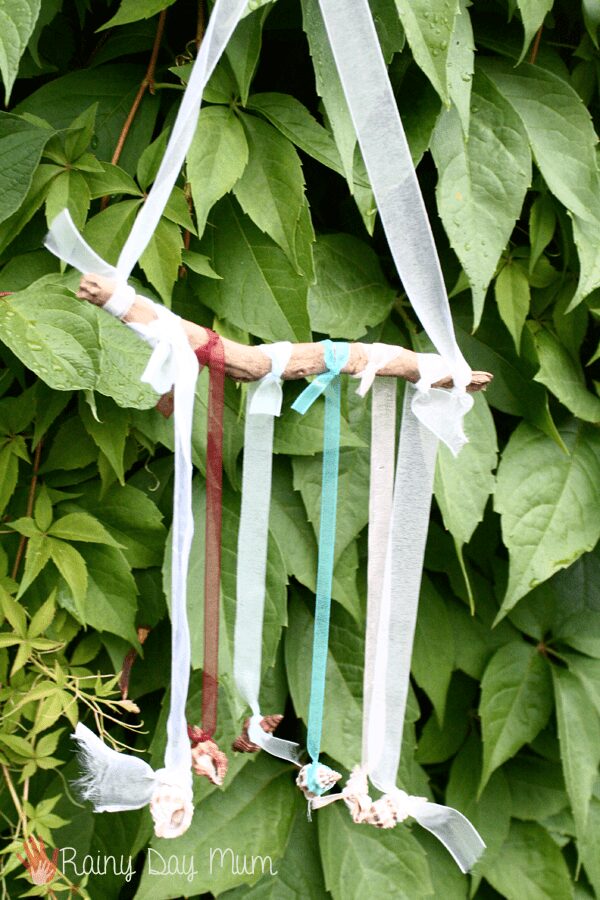
Simple Sea Shell Wind Chime to make with the kids after a trip to the beach.

Beach Memory Stones to Make with the Kids with shells and treasures collected from the shore.
Pin How to Dye Sea Shells
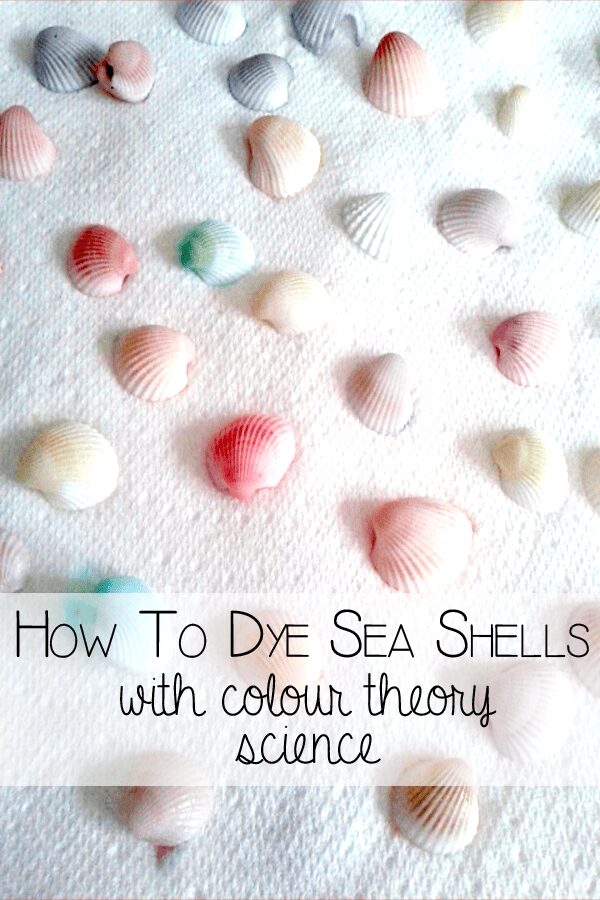



When the shells are dyed if you place them in water, will the dye come off?
Hi Sherry – we haven’t tested this – the windchime that we made with them has been outside but still has colour on the shells so unless submerged I would think a little water would be ok. But not submerging.
Not sure if you have koolaid in UK.
Found out this past Easter, the koolaid dyes egg shells better than any dye kits.
Hi!! What do you mean by 1:4 mix ratio of the water and vinegar???
In answer to this question:
Cerys your instructions say “we mixed in some water and vinegar (around a 1:4 mix is what worked the best)“. With vinegar being corrosive, surely you mean the opposite ratio? Would you confirm please that you mean 1 part vinegar to 3 parts water?
We did it the 1:4 ratio as wanted it to remove the outer layer quicker so that they would dye quickly which when doing crafts and science with preschoolers and toddlers is essential. The other ratio you could leave the shells in longer for a stronger coloured finish.
We are a meat, egg and dairy free home and so we are going to dye shells this year for easter! I just happened upon your post. We just moved to Connecticut so we are off to collect shells!
Wow, now that we live in Florida, this will be great to do with my Grand Daughter! Thanks!
And you see, I didn’t think seashells could get any prettier! Wrong again! 😉